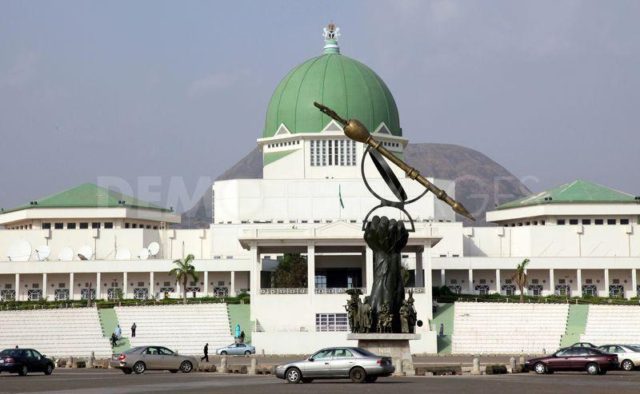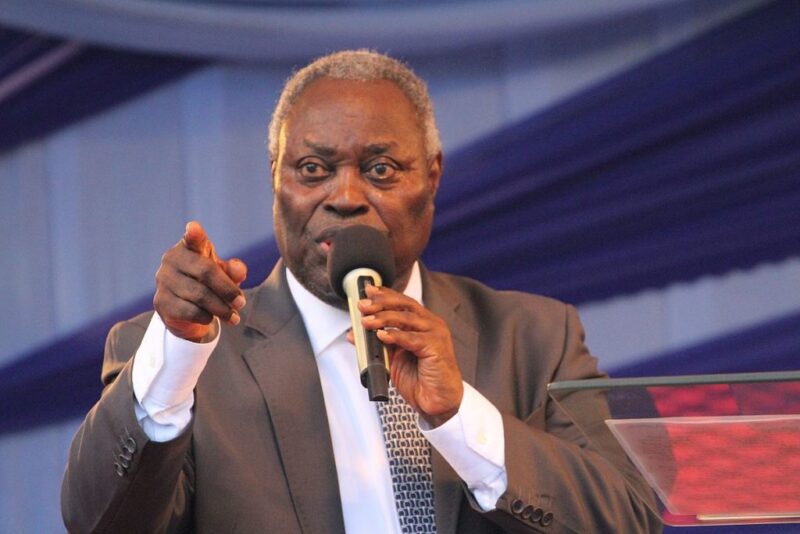Political Issues
Political Bias: Between My Tribe And My Party -By Kenneth Gyado

In 1983, an elderly friend of mine who was the chairman of the defunct National Party of Nigeria (NPN) in my local government area told me a story of his experience on his way back to Benue State from a trip to Lagos. He told me how the car he was driving developed a mechanical fault somewhere around the old Bendel State and how someone he had never met or heard of came to his rescue. It was almost nightfall and there he was in a strange land with no money and no knowledge of anyone around. All he did was to ask a passerby where the home of the NPN chairman of the area was.
He was then taken to the chairman’s house and when he introduced himself, he was welcomed with a warm embrace and treated to a lavish feast. He was shown a comfortable room where he passed the night and a mechanic was called early the next day to fix the car at his host’s expense, while he was also given a generous amount of money to proceed on his journey. This happened IN THE NAME OF THE PARTY.
If you fast forward this scenario to the current times, my friend would have probably been left to his fate because he doesn’t come from the same geopolitical zone or ethnic group of his host. The person who took him to the chairman’s home will most likely neglect him if he didn’t recognise his accent. The generous host will laugh at his claim to being in the same party and will likely tell him, ‘Bros, you are on your own”.

Such is the new thinking in our country. Political parties are now just mere alphabetical platforms to seek political office. That binding force of a common set of ideas have now been relegated so much that members now feel a greater pull to associate with ethnic groups than to abide by the dictates of their party. What we now see is the tendency of a union with enemies of the same ethnicity, as against the association of diverse friends bound by common ideas and interests.
In 2019, the political debate has shifted once again from political
parties to a latter day factor of conflict among the geopolitical zones.
This worrisome dimension has been brought about by the vicious tussle
to share the spoils of office. The Nigerian citizenry is now being
treated to an ugly spectacle of people elected on the platforms of
parties openly promoting sectional interests, as if they got elected as
independents.
The ruling All Progressives Congress (APC), which has been overwhelmingly entrusted with the mandate to govern Nigeria for another fours, has been made to grapple with pockets of dissidents who wish to threaten the cohesion within the party for unrealistic selfish pursuits. These renegades would wish to subdue the ideals of competence and experience in deference to mere ethnic politics. A political party should be able to provide the necessary guidelines for members who choose to freely associate with it to abide by. If a member believes in his own free will over and above the party, he has no business being a member of such a party.
The APC, in its own wisdom, has decided to guide its elected members on which direction to follow in electing presiding officers of the ninth National Assembly. In doing so, the party put forward two hugely experienced members who are in fact current leaders of both the Senate and the House of Representatives. The two candidates have 16 years experience in the National Assembly each. The two are leaders of the APC caucuses in both chambers. They represent the finest traditions of global legislative traditions, where the most experienced members from the majority parties lead parliaments.
While it is understandable to agitate for the spread of political offices to reflect the diversity of the country, such a desire should not be elevated to drown our quest for a robust legislature with a strong and effective leadership. Let it be known here that the noise of the Assembly becoming a rubber stamp because of the party’s interest in the emergence of its leadership does not hold water because presiding officers are answerable to members and they have no powers to go against the resolutions of members. A presiding officer who negates the direction of the members cannot last for too long.
It is an incontrovertible fact that Nigerians elected an APC president and an APC majority in both chambers of the National Assembly. Nigerians elected to be governed by the APC agenda. If they thought another party was worthy of their trust, that party would have been elected. Nigerians therefore do not expect the APC to share power with any other group in that Assembly. The APC would be held responsible for the success or failures of this government. We must never again be led into the dark channels of blind ambition demonstrated by the current National Assembly leadership, who traded their party away to realise positions. The behaviour of Saraki and Dogara remain a dark stain in our history. They presided over an Assembly with APC majority where budgets presented by an APC government took seven months to get approved. These characters led an Assembly where project proposals by an APC government were substituted for the supply of tricycles and town halls in the name of constituency projects. As APC leaders, Saraki and Dogara negotiated themselves so thin that PDP members chaired strategic committees with the agenda of frustrating the APC government.
It will amount to gross dereliction of duty for the APC leadership to idly stand by and allow the emergence of another Saraki/Dogara horror show; a show of treachery, and larceny. The excuse given for the regrettable emergence of the biggest betrayal that the Saraki era represents was the nativity shown by the APC leadership in 2015. This time around, the party is firmly in the driver’s seat and is poised to present a leadership that will mirror the ideals of the APC.
There are a gazillion reasons why the party position must prevail in a multi-party democracy. First of all, the party provides the platform for our election. The party provides solutions to security, economy, health, etc. No tribe or geopolitical zone canvasses for votes, neither do we have any such nomenclature as “North-Central party”, “South-East party” or “North-West party”. In fact, there is nothing like a Tiv party, Yoruba party or Igbo party. Even the parties that are ethnic based still have national pretentious in their documents. In essence, the party connects directly with the welfare of citizens, while allegiance to tribes only provides psychological relief.
The party is superior to the tribe because the party has the capacity to physically affect our well being, while allegiance to the tribe only gives one an illusion of vicarious satisfaction. While loyalty to the party expands our horizon, obsession to ethic groups shrinks our world view. As a matter of fact, the reality of tribal loyalty, in terms of benefits derived, gets smaller because of the natural tendency to narrow the sense of belonging to smaller sub-groups. That is why a general Yoruba agitation, for instance, soon becomes an Egba agenda to the exclusion of the Ijebus and Ijeshas. When a Tiv man assumes a position, his kinsmen suddenly realise this is a Kunav thing and not a Sankera or a Minda thing. It is this contradiction that will make Igbo brothers reject a Bishop in Mbaise, Imo State because he comes from Anambra State.
The tribal platform is a wool pulled in the eyes of unsuspecting members, while the eventual benefits is narrowed to the nuclear family unit. The party belongs to all of us and its supremacy must be upheld at all times. If you win as an individual and your party loses, you have lost but if you lose as an individual and your party wins, then you have won! For the ninth Assembly, the party has spoken, so shall it be.
Kenneth Gyado, a citizen reporter, writes from Abuja.



















